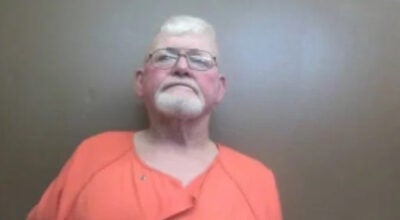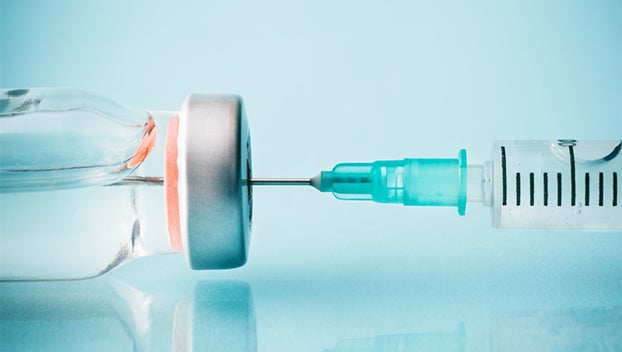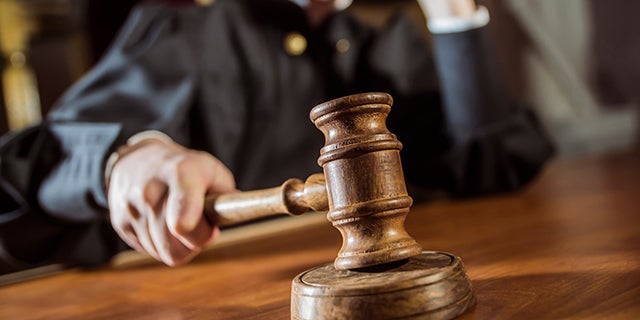MDOC officials to prisoners: Take COVID-19 vaccine or face serious consequences
Published 6:33 am Saturday, April 3, 2021
By Brittany Brown
Mississippi Today
Leaders of the Mississippi Department of Corrections, the agency that oversees the state’s prison system, publicly say COVID-19 vaccines are not mandatory inside prisons and boast the state’s low percentage of prisoners refusing to become inoculated.
But inside the state’s largest prison, people who are hesitant to take vaccines face serious consequences like no visitation rights, no access to work programs and no consideration for movement to different facilities, according to documents obtained by Mississippi Today.
Those consequences, paired with little information about the vaccines provided to prisoners by MDOC, are leaving many people in prison feeling confused and coerced into taking vaccines they know little about or don’t trust.
The stakes are especially raised for prisoners since visitation has been postponed since the pandemic began in March 2020.
MDOC began administering COVID-19 vaccines to people in prison on March 19, making Mississippi among the first states to conduct mass vaccinations inside prisons. As of Tuesday, prison officials said they had administered 6,030 first-dose shots of the Moderna and Pfizer vaccines across five prisons: the Central Mississippi Correctional Facility in Pearl, Mississippi State Penitentiary at Parchman, South Mississippi Correctional Institution near Leakesville and at two of the state’s private prisons, East Mississippi Correctional Facility near Meridian and Marshall County Correctional Facility in Holly Springs.
MDOC Commissioner Burl Cain offered cookies to prisoners in CMCF, the state’s largest prison, after they received a shot in March. Cain said that vaccinations were not mandatory but that the shots are “one of the best tools to protect other inmates from an outbreak coming from outside.”
The press release, which boasted that just 1% of prisoners had refused the vaccine, portrayed a generous tone shared with prisoners regarding whether they should become inoculated.
“We talked to the guys and ladies up front and let them know, ‘Hey, if y’all want to get back to normal and get activities going, visitations, increase our religious, academic and vocational programs, let’s do this,” Ronald King, the superintendent at CMCF, said in the MDOC press release. “And we let them know we got the vaccinations ourselves and told them, ‘Hey guys we took the vaccinations ourselves and everything’s working out fine.’ We want everybody to take the vaccination.”
But King’s tone was not nearly as generous in a document he circulated inside his prison. The document, obtained by Mississippi Today, reads: “In the event an inmate refuses the vaccine this will occur: 1) No visitation; 2) No work or program activities; 3) No participation in any group activities; 4) May require living in a designated unit for separation purposes; 5) Will not be considered for movement to any other facility. Thank you, Ron King.”
An imprisoned activist who goes by the name Brother Khent told Mississippi Today that MDOC has not given people in prison much educational information about the COVID-19 vaccine. Khent, founder of the prison advocacy organization the National PLUS Coalition, said some prisoners feel forced to take the vaccine and agreed to take it just to see their families again when visitation is reinstated. He also said many people in prison do not trust the vaccine.
“I’ve taken mine,” Khent said about receiving the first dose of the vaccine. “But a lot of people are not aware. They’re not educated on any of this type of stuff. When it comes down to these vaccines, they automatically be like, ‘Man, I’m not finna let them people shoot nothing up in me. I don’t know what the hell’s going on.’”
MDOC’s health care provider VitalCore Health Strategies distributed a COVID-19 fact sheet to people in prison, providing basic facts and information about the vaccine, according to a document obtained by Mississippi Today.
Still, several people in prison and their loved ones told Mississippi Today there is a general lack of understanding about the vaccine, and the strict consequences make them feel forced to take it.
“Only reason I took (the vaccine) is because I want to see my family. I do not trust the vaccine, period. Would have never taken it if I was free,” a man incarcerated in MDOC told Mississippi Today. “Isolated, no visits, (no) job.”
Dr. Marc Stern, an assistant professor of health services at the University of Washington and an expert in correctional health care, warned against such practices.
“Forcing people or coercing people to get medical treatment should always be the last resort,” Stern said. “Before coercing, you should exhaust non-coercive methods… Non-coercive methods are, first and foremost, education. Providing the information that people need to make a good decision in their own self interest.”
That information can be disseminated through town hall meetings, explaining the risks, benefits and side effects of the vaccine, Stern said. He also specifically mentioned prison officials could distribute informational posters and videos, circulate pamphlets, provide incentives and work with trusted messengers both inside and outside the prison to build trust and knowledge about the vaccine among the prison population.
The Mississippi State Department of Health provided MDOC with 3,500 doses of the Moderna and Pfizer vaccines in March to begin inoculating prisoners, according to an MDOC press release. MDOC is expected to receive more Moderna and Pfizer vaccine doses from the health department soon to continue administering first doses of the shot. The health department may also provide MDOC with “a few thousand” doses of the Johnson and Johnson vaccine, which only requires one dose, the department of corrections said.
While MDOC is now inoculating prisoners by administering vaccines to protect them from the coronavirus, the agency is not entirely sure how much the pandemic has impacted the people incarcerated within its system, having tested only a fraction of the prison population since the pandemic began in 2020.
As of March 26, 2021, MDOC’s data, shared with Mississippi Today, shows the agency has tested 3,360 incarcerated people, which revealed 1,397 positive cases of COVID-19 and 1,963 negative tests. This is out of nearly 15,000 people incarcerated at MDOC’s three state prisons, three private prisons and 18 county regional facilities.
MDOC also reports that 23 people in prison died of COVID-19 in the last year, though the agency reported more than 100 incarcerated people died in 2020 alone.
MDOC is also unable to verify how many of their employees, staff and correctional officers, who regularly enter and leave the prison for work, have been vaccinated for COVID-19 because many are vaccinated at other sites and not through MDOC, the agency said.
“Jails and prisons are high-risk locations…being in prison makes it much more likely that you’re going to get infected because it’s hard to keep social distance,” Stern, the correctional health care expert, said. “Ventilation may not be great. Hand hygiene may be challenging. Mask wearing may be challenging. All those things that we’re supposed to do are more difficult in a correctional setting…the people who are in jail and prison are at higher risk for having serious infection because they have a higher concentration, than the general public, with a chronic disease.”
Michael Knight, incarcerated at CMCF in Pearl, was one of the first to receive the vaccine, his wife Lala Knight told Mississippi Today. Michael Knight had recently told his wife he didn’t think he would be vaccinated because he is incarcerated.
“I had happened to ask him like a week before (he received the vaccine) if he had heard anything about them giving the vaccine. He was like, ‘Oh I doubt very seriously they’d give it to us because I’m in prison,’” Lala Knight told Mississippi Today.
She also said her husband previously had COVID-19 in December 2020 while he was jailed in the Madison County Detention Center and said he didn’t feel like jail officials did all they could to protect them from spreading the virus.
“They were all crowded together. There were visibly people coughing, sneezing, you know, looking like they were sick,” Lala Knight said. “It seemed like he might have been in a kind of like an open area…I mean I know he said at one point it seemed like there was 200 people in one spot.”
Lala Knight said her husband opted to take the vaccine to avoid being infected with the virus for a second time and to be able to resume visitation while in prison.
But while many prisoners are apprehensive about receiving the shots, others are grateful, looking forward to visitation and work programs.
LeBarron Chatman, who is incarcerated at South Mississippi Correctional Institution near Leakesville, told his wife Sara Jane Scott that he’s supportive of the vaccine and is willing to take it, Scott told Mississippi Today. Scott said Chatman has pre-existing medical conditions that make him especially susceptible to the coronavirus, including a history of seizures, a brain tumor that has been removed and hypertension.
After multiple vaccination schedule changes at SMCI, Scott said, Chatman received the first dose of the vaccine Wednesday morning.
“It’s very frustrating to be told one thing and have it change three times…I think that (getting the vaccine) is a positive thing that he does, too, even for each other to keep people within their zones safe because none of the other stuff is really going on,” Scott said about MDOC’s sanitation efforts.
Scott is a Gulfport resident and is the founder of the prison advocacy organization The Parchman Project. She said she is fully vaccinated, having already taken both doses of the vaccine, and is looking forward to visiting her husband in prison.
“That’s a bonus,” Scott said. “When we first started hearing that they were going to make sure that anybody incarcerated could get it, (Chatman) was like, ‘Yeah, I’m going to get that.’”
Still, other people in prison are not as optimistic and trusting and are refusing to take the vaccine out of fear, exposing themselves to the potential consequences outlined by prison officials.
“I didn’t take it cause it’s nothing wrong with me,” one man incarcerated in MDOC, who said he hasn’t had a visitor since 2007, told Mississippi Today. “I’m not going to take it at all. Not dealing with trust.”
Editor’s note: Several people in this piece are quoted but unnamed or cited using a nickname. All of those people are currently incarcerated within the MDOC system, and they asked that their names not be used out of concern for their safety and privacy. Mississippi Today independently confirmed their identities and statuses of incarceration.
More News






